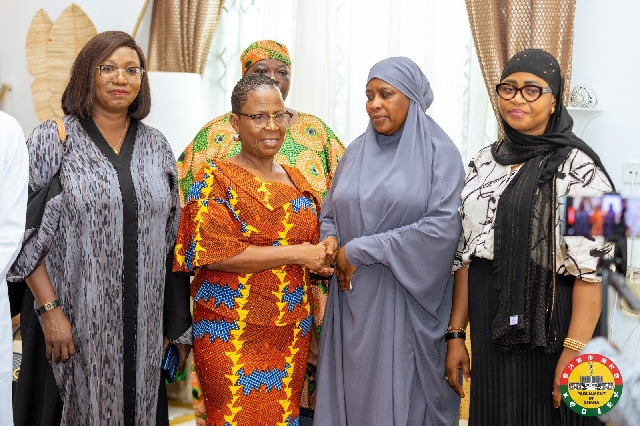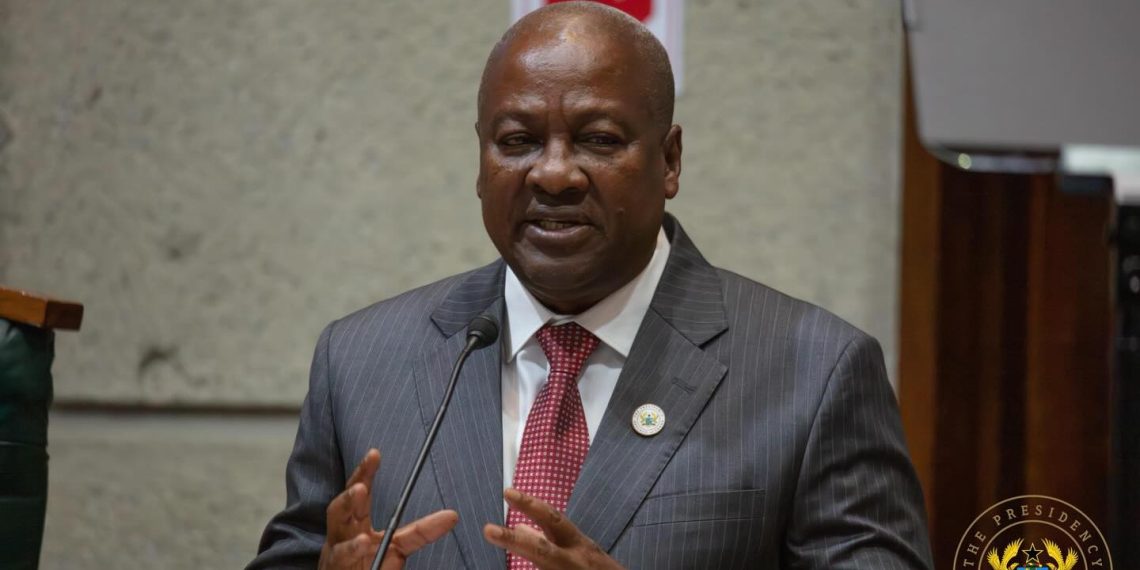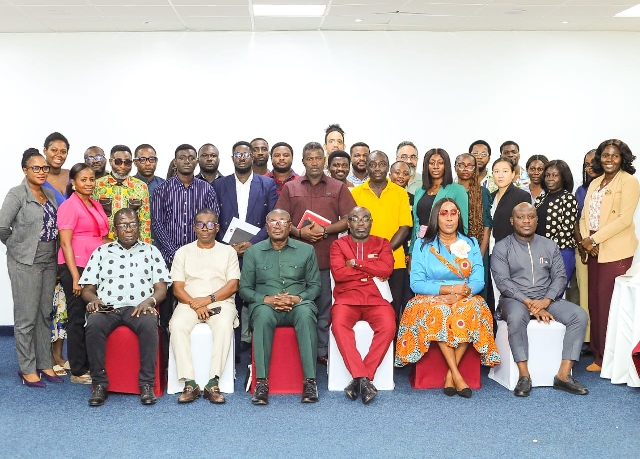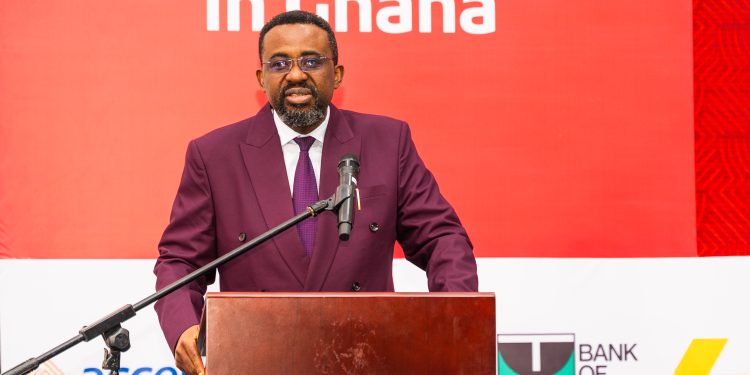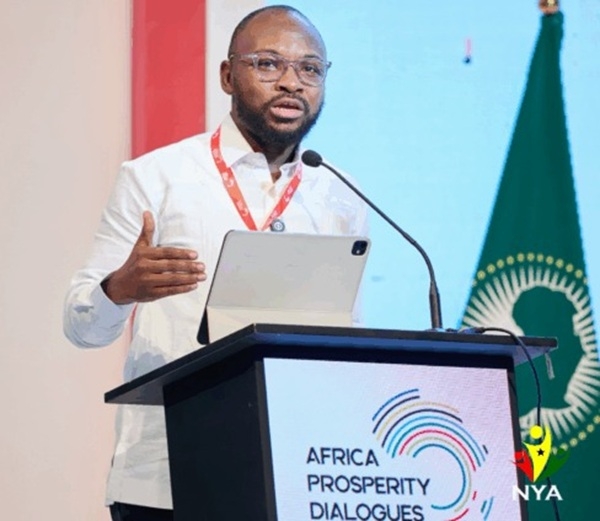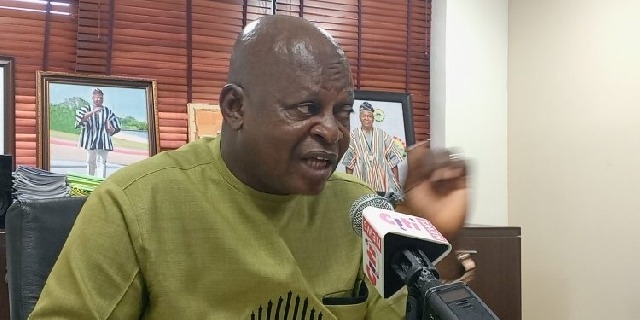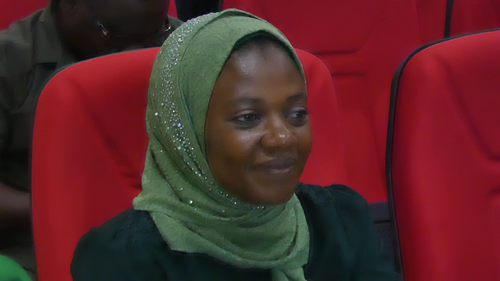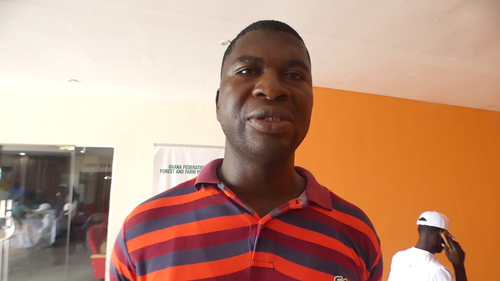Feature By Ngamegbulam Chidozie Stephen As I traveled through the Upper East, North East, Upper West, Northern, and Savannah regions, I heard a recurring theme from farmers: frustration. The source of their frustration was not drought, pests, or diseases, but rather the high cost of agrochemicals, particularly fertilizers. However, their concerns are deeply intertwined with the escalating impacts of climate change. Farmers in these regions, who rely heavily on agriculture for their livelihoods, expressed their concerns about the escalating prices of fertilizers. They lamented that the high cost of these essential inputs was eating into their profits, making it difficult for them to sustain their farming businesses. Climate change has exacerbated this issue, as rising temperatures and changing rainfall patterns have led to decreased crop yields, forcing farmers to rely more heavily on agrochemicals to maintain productivity. Moreover, the intensive use of chemical fertilizers can lead to soil degradation, water pollution, and loss of biodiversity – all of which are further exacerbated by climate change. As temperatures rise, soil moisture decreases, and extreme weather events become more frequent, the use of chemical fertilizers can have devastating consequences for the environment. The farmers’ concerns are not unfounded. Climate change is projected to increase temperatures in West Africa by up to 3.5°C by 2100, leading to more frequent droughts, floods, and heatwaves. This will have a disproportionate impact on smallholder farmers, who are already struggling to adapt to the changing climate. Grass Biochar a game changer The concept of biochar has been around for over 2,000 years, dating back to the “slash-and-burn” agricultural method practiced by ancient civilizations. However, the modern understanding and application of biochar as a tool for environmental management and climate change mitigation have developed significantly over the past few decades. The term “biochar” emerged in the early 2000s, in conjunction with growing concerns about soil management and carbon sequestration.¹ Since then, research and development of biochar technologies have accelerated, with various organizations and initiatives promoting its use as a sustainable solution for environmental and agricultural challenges. Some notable milestones in the development of biochar include: A. 2001: The International Biochar Initiative (IBI) was established to promote the use of biochar for environmental management and climate change mitigation. B. 2009: The IBI published a report highlighting the potential of biochar to mitigate climate change by sequestering carbon in soils. C. 2012: Researchers began exploring the use of biochar as a soil amendment to improve soil fertility and reduce greenhouse gas emissions. D. 2024: The Biochar Basics series was published, providing introductory information on biochar used as a container substrate component. Today, biochar is recognized as a multifunctional material with various applications, including carbon sequestration, soil fertilization, water filtration, and contaminant immobilization. Innovative Grass Biochar Offers Promising Solutions for Climate Change and Sustainable Agriculture However, despite all these years of Biochar existence, no scientist or researcher has come out with the innovation of ‘Grass Biochar’. Fortunately, following the skyrocketing increase of chemical fertilizers and some other farming inputs which has become huge challenge for farmers especially in the northern parts of Ghana, in a groundbreaking development, Prof. David Millar of the Millar Institute for transdisciplinary and Development Studies (MITDS) went into research and later came out with ‘Grass Biochar’, an organic fertilizer with the potential to significantly combat climate change while promoting sustainable agriculture. This innovative product harnesses the power of biochar, derived from grass, to provide numerous environmental benefits. One of the key advantages of ‘Grass Biochar’ is its ability to store carbon in the soil for extended periods. By converting grass into biochar, the carbon is locked away, effectively reducing atmospheric CO2 levels and helping to slow global warming. Studies indicate that widespread adoption of biochar could remove up to 10 gigatons of CO2-equivalent from the atmosphere annually, with the potential to decrease global greenhouse gas emissions by 10-20%. In addition to its carbon-sequestering properties, Grass Biochar enhances soil health by improving fertility, structure, and water-holding capacity. This leads to better plant growth, reduced soil erosion, and healthier ecosystems, as resilient soils can absorb and store even more carbon. Moreover, Grass Biochar plays a vital role in reducing greenhouse gas emissions. It has shown effectiveness in lowering nitrous oxide (N2O) and methane (CH4) emissions from soils. By promoting efficient nutrient cycling, it minimizes the need for fertilizers, thus further decreasing N2O emissions. Grass Biochar also supports regenerative agriculture practices, which promote soil conservation and biodiversity. By utilizing readily available biomass like grass, its production encourages sustainable land management while also addressing the issue of waste, as grass is often viewed as a nuisance. The benefits of Grass Biochar extend to climate change adaptation as well. Fields enriched with biochar exhibit improved drought resilience and enhanced water retention, helping farmers navigate climate variability and extreme weather conditions effectively. Furthermore, the potential impact goes beyond environmental benefits. The Grass Biochar initiative could create job opportunities in production and application sectors. Enhanced soil fertility leads to improved crop yields, thereby bolstering food security and availability. To fully realize the climate change mitigation potential of Grass Biochar, government support is essential. Recommendations for action include research funding to explore optimal production methods and scalability, as well as policy incentives such as subsidies or carbon credits to encourage farmer adoption. Educating farmers, policymakers, and stakeholders about the benefits of biochar and best practices will also be crucial for successful implementation. Prof. Millar’s Grass Biochar not only presents a viable solution to tackle climate challenges but also promotes sustainable agriculture, ultimately contributing to a more secure food future. Engaging Prof. Millar, he emphasized that the resources required for grass biochar production are readily available at the local level, unlike chemical fertilizers. He revealed the project has reached 11 communities across 5 regions, aims to train women’s groups in the production of grass biochar, a revolutionary organic fertilizer. The impact of this initiative has been nothing short of remarkable. Women who were once struggling to make ends meet are now equipped with the knowledge
Addressing Climate Change’s Impact on Women in Agriculture
Madam Jangu Barikisu Alhassan, representing Women in Agricultural Development Directorate (WIAD) in the Upper West Region, has highlighted the devastating effects of drought on farmers due to climate change at the 2024 GhaFFap National Dialogue Series in Bolgatanga the Upper East Regional Capital. Apexnewsgh reports According to Madam Barikisu, Climate change poses significant challenges to smallholder farmers, particularly women, who face limited access to land, productive resources, and finance. She further emphasized the need for collaborative efforts to address these worrying issues. Advocacy for women’s access to land and resource, Collaborative efforts with traditional leaders and policymakers, Financial inclusion and empowerment for women and Joint action with men to promote gender equality are some of the issues she raised during the National Dialogue. The theme for the 2024 GhaFFap National Dialogue says “Small holder producer organizations access to finance market linkages and social protection key to delivering sustainable climate resilience and green recovery,” Source: Apexnewsgh.com/Ngamegbulam Chidozie Stephen/Bolgatanga
Forest and Farm Facility’s National Dialogue Tackles Climate Change and Social Protection
Abraham Yalley, Assistant National Facilitator for Forest and Farm Facility (FFF), has shared his insights at the 2024 GhaFFap National Dialogue in Bolgatanga. Apexnewsgh reports The Facilitator for Forest and Farm Facility (FFF) project spans Ghana’s forest, transitional, and savanna zones, supporting farmer-based organizations. Mr. Yalley highlighted four key outcomes: Improved governance and local-level activism, Business innovation through cooperatives, Climate resilience and Social protection Mr. Yalley emphasized incorporating climate-smart interventions and linking members to government organizations for social protection. “Climate change is a reality, and its impact is far-reaching, affecting everyone. To address this, we at the Forest and Farm Facility (FFF) are integrating climate-resilient strategies into our activities”. He said “Our focus also includes social protection, ensuring our beneficiaries have access to government and state organization support. We’re bridging this gap by linking them to essential services”. Mr. Yalley further revealed they conducted site visits to their partner Farmer-Forest Organizations (FFOs), witnessing firsthand their progress and achievements. “This exchange allows us to learn from their experiences and enhance our support.” The national dialogue brought together FFF groups, government organizations, private sectors, and financial institutions to discuss market access, financing, climate resilience, and social protection. The event aimed to create action plans, foster networking, and share lessons learned. Source: Apexnewsgh.com/Ghana For publication please kindly contact us on 0256336062 or Email apexnewsgh@gmail.com
GhaFFaP Gets Green Light from Upper East Agric Director
Alhaji Zakaria Fuseini, the Upper East Regional Director of Agriculture, has extended a warm invitation to members of the Ghana Federation of Forest and Farm Producers (GhaFFaP), emphasizing that his doors are always open to assist them. Apexnewsgh reports This pledge was made during the fourth national dialogue series organized by GhaFFaP in Bolgatanga, which focused on “Smallholder producer organizations access to finance market linkages and social protection key to delivering sustainable climate resilience and green recovery”. As a key partner in development, Alhaji Zakaria Fuseini acknowledged the importance of collaboration, stating that “we can’t do without anybody, other person. We can’t do it alone”. He highlighted the technical expertise offered by his office, particularly in agriculture and forest management, and expressed enthusiasm for working with GhaFFaP to promote climate resilience and sustainable forest management. GhaFFaP, launched in March 2020, aims to build profitable forest and farm-based businesses, promote climate-resilient landscapes, and shape national policies. With over 1 million members, 46% of whom are women, GhaFFaP has established a strong presence in Ghana’s forest and farm producer sector. The Agric Director believes by fostering collaboration and inclusive decision-making, GhaFFaP and its partners are working towards a more sustainable and equitable forest and farm sector in Ghana. Source: Apexnewsgh.com/Ghana For publication please kindly contact us on 0256336062 or Email apexnewsgh@gmail.com
GhaFFaP Advocates for Smallholder Farmers’ Empowerment
Madam Alima Sagito Saeed, National President of the Ghana Federation of Forest and Farm Producers (GhaFFaP), championed smallholder farmers’ causes at the fourth national dialogue series. Apexnewsgh reports “GhaFFaP supports producer organizations in the forest and farm value chain,” she explained. “We collaborate with ministries, agencies, and departments, like Agriculture, Land and Natural Resources, and Forestry Commission, to drive policy change.” The dialogue focuses on farmers’ access to financial services, inputs, land, and markets. “When production increases, we want farmers to sell and earn a decent income,” Madam Saeed emphasized. According to Alima, GhaFFaP has successfully convened a national dialogue series, uniting over 100 stakeholders from various sectors. These stakeholders include: (a) Ministries, Agencies, and Departments: Representatives from key government institutions (b) Private Sector Operators: Companies invested in the forest and farm value chain (c) Financial Institutions: Banks and savings and loan schemes to provide economic support (d) Women Groups: Empowering female farmers and producers (e) Physically Challenged Representatives: Ensuring inclusivity for persons living with disabilities (f) Research Institutions: Experts providing valuable insights and data The goal of this diverse gathering is to foster collaboration and inform policy strategies that benefit all stakeholders, particularly young and old farmers, and capable producers. By sharing knowledge and resources, GhaFFaP aims to create a supportive environment where farmers can thrive and contribute to Ghana’s agricultural growth. As Ghana grapples with crippling droughts, The National President of the Ghana Federation of Forest and Farm Producers (GhaFFaP), urges collective action. “We’re facing unprecedented climate challenges,” she said. “This national dialogue seeks solutions. How can we leverage technology and knowledge to build resilience?” To truly understand farmers’ struggles, GhaFFaP’s team visited farm locations, witnessing firsthand the devastating impact of climate change. “We saw that farmers practicing Smart Agriculture were more resilient,” Madam Alima noted. “It’s crucial that knowledge reaches those who need it most – the farmers.” GhaFFaP’s dialogue aims to bridge this knowledge gap, ensuring that expertise trickles down to the grassroots level. “Knowledge should not remain at the top,” Madam Alima emphasized. “Our forum brings stakeholders together to agree on strategies for climate resilience, empowering farmers to thrive despite challenges.” Madam Alima’s passion for empowering rural farmers shone through as she continued to share her vision. “As you can see, we’ve brought together innovators and exhibitors who are revolutionizing the agricultural landscape. Our farmers are producing high-quality crops, and their packaging is impressive. We’re showcasing the potential of Ghana’s agricultural sector, and people are taking notice.” She emphasized the importance of partnership, saying, “We appreciate the support from government ministries and departments. We’ve made progress, but there’s still work to be done. We need continued collaboration to ensure food security and income stability for our people.” Madam Alima highlighted climate management and adaptation as key concerns. “Ghana has policies in place, including the climate change framework, but we must ensure this knowledge reaches the farmers. We’re urging departments working directly with farmers to share critical information, enabling them to adapt to climate challenges.” Her words echoed the sentiments of experts like Dr. Akinwumi Adesina, President of the African Development Bank, who stresses the importance of supporting smallholder farmers. By empowering these farmers, Ghana can unlock its vast agricultural potential, boost food security, and drive socio-economic growth. Madam Alima’s dedication to this cause is inspiring, and her efforts are already yielding positive results. As Ghana strives for a food-secure future, her leadership and vision will undoubtedly play a vital role in achieving this goal. The theme for the 2024 dialogue “Small holder producer organizations access to finance market linkages and social protection key to delivering sustainable climate resilience and green recovery” The National dialogue was organized in Bolgatanga at Lapam Zorkor hotel. Source: Apexnewsgh.com/Ngamegbulam Chidozie Stephen/ Bolgatanga
Water Security Crucial for Sustainable Agriculture, says Forest and Farm Facility National Facilitator
At the 2024 National Dialogue Series in Bolgatanga, Upper East Region, Elvis Kuudaar, National Facilitator for Forest and Farm Facility (FFF), emphasized the vital role of water in agriculture. Apexnewsgh reports He stressed that expanding micro-pilot projects to medium-scale initiatives and addressing water distribution are essential for sustainable agriculture. Mr. Kuudaar highlighted two main challenges facing Agriculture as Climate Change: Changing rainfall patterns and longer dry seasons affect agriculture and Water Distribution: Ensuring water supply to communities for year-round farming. To address these challenges, the National Facilitator proposed Grass Charcoal Production: Putting monetary value to grass can prevent bush burning, preserve soil microbes, and promote natural regeneration, Sustainable Livelihoods: Linking restoration efforts to people’s livelihoods and economics ensures sustainability, Innovative Technology: Converting smoke into liquefied carbon can create additional revenue streams. Mr. Kuudaar further emphasized the importance of collaboration among stakeholders, including the Forestry Commission, Ministry of Food and Agriculture, and donor partners. He encouraged practicalizing collaboration to include initiatives in incubators and scale up successful projects. To convince farmers of the effectiveness of sustainable agriculture practices, Mr. Kuudaar suggested showcasing tangible results. By making sustainable agriculture visible and viable, FFF aims to engage donor partners and scale up initiatives. Similar initiatives have shown success globally. For instance, the World Bank’s forest projects support systemic engagement in countries like, Indonesia, and Mexico. The UK is also scaling up support for sustainable, climate-resilient farming practices and improved access to clean water in climate-vulnerable countries. The theme for the 2024 GhaFFap National Dialogue says “Small holder producer organizations access to finance market linkages and social protection key to delivering sustainable climate resilience and green recovery,” Source: Apexnewsgh.com/Ngamegbulam Chidozie Stephen/Bolgatanga
Mainstreaming Grass Biochar in Agriculture: A way to go for Farmers–Clifford Amoah Adagama
Clifford Amoah Adagama, of Kessena Nankana Cooperative Baobab Processors Union (KANBACU), has emphasized the potential of grass biochar to transform agriculture in the region. Apexnewsgh reports Speaking at a dialogue meeting organized by the Millar Institute for Transdisciplinary and Development Studies (MITDS) in Bolgatanga, Mr. Adagama highlighted the benefits of mainstreaming biochar into agricultural production. Mr. Adagama noted that introducing biochar to dry season farming can help reduce the reliance on chemical fertilizers, promote soil rejuvenation, and increase fertility levels. This innovation has the potential to support women farmers who struggle to access capital for chemical fertilizers. KANBACU has already received training on biochar production and has started initial pilots. Mr. Adagama stressed the need for government support to scale up this innovation, advocating for a seed fund to be established for environmental conservation and protection initiatives. This fund would enable innovators to access resources to develop and scale their technologies, reducing the environmental impact of bushfires in the region. According to him, the adoption of grass biochar in agriculture has the potential to reduce pressure on farmers, promote conservation, and increase household income. Mr. Adagama’s call to action emphasizes the importance of government investment in this innovation to reduce the environmental impacts of bushfires and promote sustainable agriculture practices. Source: Apexnewsgh.com Thanks for reading from Apexnewsgh as a news publishing website from Ghana. We encourage you to freely share this story via social media platform and follow us on; Facebook on APEXNEWSGH-Tv or Please contact Apexnewsgh.com on email apexnewsgh@gmail.com for your credible news publications. Contact: 0248250270/0256336062
Embracing Grass Biochar: A Game-Changer for Farmers in Talensi
Peter Abunga, Department of Social Welfare and Community Development Talensi, has expressed his enthusiasm for grass biochar, a innovation that has the potential to revolutionize farming in the region. Apexnewsgh reports Speaking at a dialogue meeting organized by the Millar Institute for Transdisciplinary and Development Studies (MITDS) in Bolgatanga, Mr. Abunga shared his views on the benefits of grass biochar, highlighting its potential to improve soil fertility, reduce the need for chemical fertilizers, and increase water retention in the soil. Mr. Abunga, who comes from a farming background, emphasized the significance of this innovation for farmers in the region. He noted that the use of chemical fertilizers has become increasingly expensive, making it difficult for farmers to afford. Grass biochar, on the other hand, is a cost-effective and sustainable solution that can help enrich soil fertility, reduce soil erosion, and increase crop yields. The Department and Community Development Talensi official expressed his gratitude to the Millar Institute for introducing this innovation and urged the government to intervene and support the implementation of grass biochar in farming practices. He emphasized that government backing is crucial for the success of this policy, particularly in the context of the Planting for Food and Jobs initiative. Mr. Abunga’s endorsement of grass biochar is a testament to its potential to transform farming in Talensi and beyond. As a community leader, his support is essential in promoting this innovation among farmers and encouraging its adoption. “With government support, grass biochar can become a game-changer for farmers in the region, improving their livelihoods and contributing to food security”. He stressed Source: Apexnewsgh.com Thanks for reading from Apexnewsgh as a news publishing website from Ghana. We encourage you to freely share this story via social media platform and follow us on; Facebook on APEXNEWSGH-Tv or Please contact Apexnewsgh.com on email apexnewsgh@gmail.com for your credible news publications. Contact: 0248250270/0256336062
Grass Biochar, a life saver for us as Ghanaians– Abu Dokuwie Alhassan
Abu Dokuwie Alhassan, Executive Director of Capacity Enhancement and Community Support (CAPECS), has emphasized the significance of the Grass biochar innovation introduced by the Millar Institute for Transdisciplinary and Development Studies (MITDS). He describes the innovation as a life saver. Apexnewsgh reports This technology has the potential to restore environmental dignity, improve soil health, and increase productivity. Alhassan highlighted the widespread use of chemical fertilizers by farmers in Ghana, which harms the environment and perpetuates reliance on imported products. He stressed the need to promote indigenous technologies like grass biochar, which can create jobs, generate generational wealth, and improve soil health. “As far as am concerned, biochar is a life saver for us as Ghanaians, biochar serves as a very important manure and you realized in recent times practically every farmer have resorted to the use of chemicals and that is disingenuous to our environment. If we can promote the use of indigenous technology like this biochar that is been introduced by Millar Institute, i think we have the opportunity to make our soil better” Sharing his personal experience as a farmer, Alhassan noted the high cost of chemical fertilizers and the burden it places on rural farmers. He emphasized that adopting indigenous approaches can reduce costs, improve soil health, and increase income for farmers. Alhassan called on the government to promote the use of indigenous technologies and reduce reliance on imported chemical fertilizers. By doing so, Ghana can create a more sustainable and self-sufficient agricultural sector that benefits both farmers and the environment. The benefits of grass biochar include: Improved soil health, Increased productivity, Job creation in the grass economy, Generational wealth creation, Reduced costs for farmers, Improved soil health, Increased income for farmers By embracing this innovation, Ghana can take a significant step towards sustainable agriculture and environmental restoration. Source: Apexnewsgh.com Thanks for reading from Apexnewsgh as a news publishing website from Ghana. We encourage you to freely share this story via social media platform and follow us on; Facebook on APEXNEWSGH-Tv or Please contact Apexnewsgh.com on email apexnewsgh@gmail.com for your credible news publications. Contact: 0248250270/0256336062
Grass Biochar: Adding Value to grass will go a long way in putting money into people’s pocket—Awal Ahmed Kariama
Alhaji Awal Ahmed Kariama, Executive Director of RISE Ghana, has expressed his enthusiasm for the new grass biochar innovation introduced by the Millar Institute for Transdisciplinary and Development Studies (MITDS). He believes, adding value to grass will go a long way in putting money into people’s pocket. Apexnewsgh reports During a zonal dialogue meeting in Bolgatanga, Alhaji Awal shared more interesting views on the potential of this technology to improve soil health, increase productivity, and reduce poverty. Ahmed highlighted the challenges faced by farmers, including the high cost of inputs, particularly fertilizer. He emphasized that the introduction of briquettes from this innovation will significantly reduce the cost of farming, leading to improved income for farmers and reduced poverty levels. “As for farmers, some challenges that they have is the high cost of inputs and by inputs particularly fertilizers, is very expensive for most of our farmers and so the introduction of grass biochar will go a long way in reducing the cost of farming for our farmers and by reducing the cost of farming that means that the impact in terms of the income the farmer is going to get, is going to improve and when that is improved the level of poverty in the house is improved” He said As an NGO focused on supporting vulnerable groups, RISE Ghana sees the potential for grass biochar to benefit women, persons with disabilities, and other marginalized communities. Ahmed expressed his organization’s commitment to exploring ways to integrate this innovation into their strategic plan, focusing on income generation, promoting inclusion, and reducing economic vulnerability. “If we add value to grass like Prof Millar is trying to do I think it will go a long way to equally put money into people’s pocket, but it will also help protect our environment. So, for me I see it as a very creative idea, and I think everybody who interested in the environment who is interested in reducing poverty should come all out and support this to become a reality” He tressed Regarding policy, Ahmed acknowledged the importance of government support but emphasized the need to leverage existing policies and entry points to promote this innovation. He called on the government to take immediate action to support sustainable agriculture and environmental restoration through innovative technologies like grass biochar. Source: Apexnewsgh.com Thanks for reading from Apexnewsgh as a news publishing website from Ghana. We encourage you to freely share this story via social media platform and follow us on; Facebook on APEXNEWSGH-Tv or Please contact Apexnewsgh.com on email apexnewsgh@gmail.com for your credible news publications. Contact: 0248250270/0256336062

